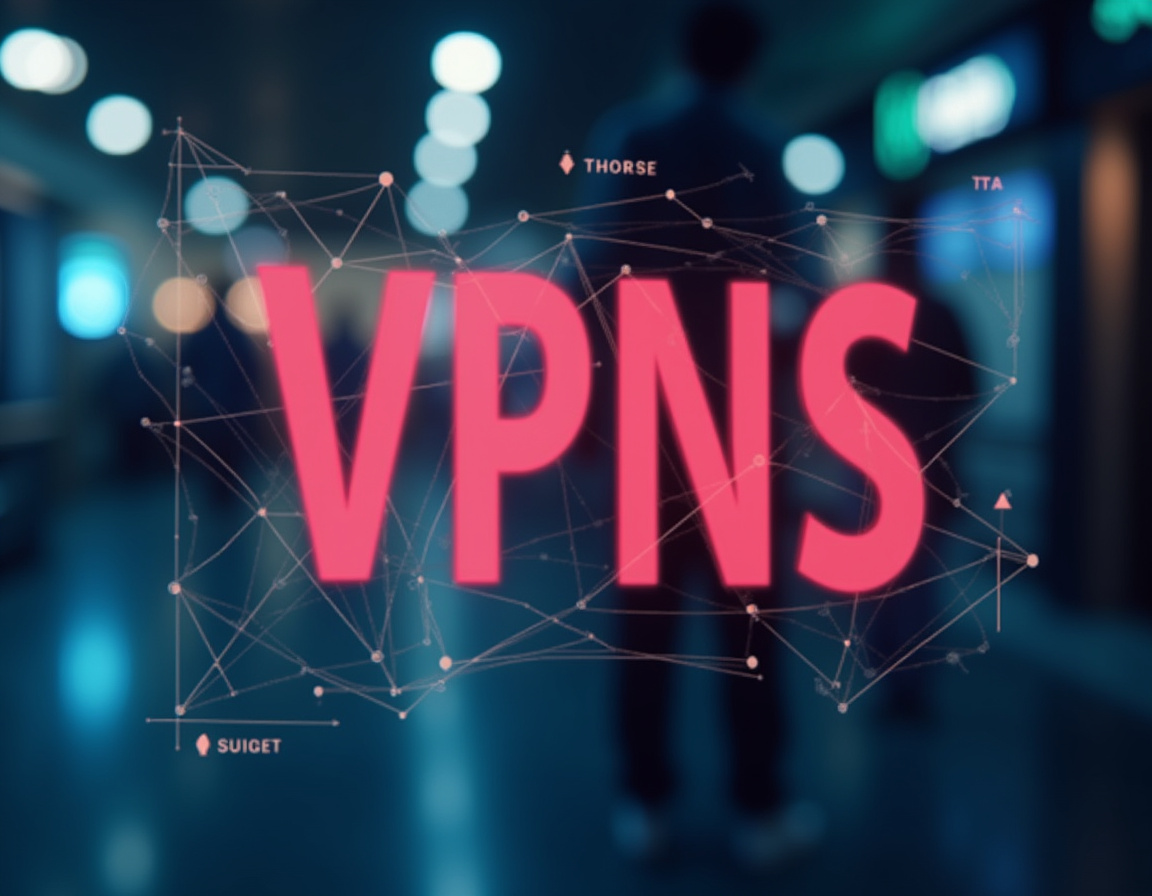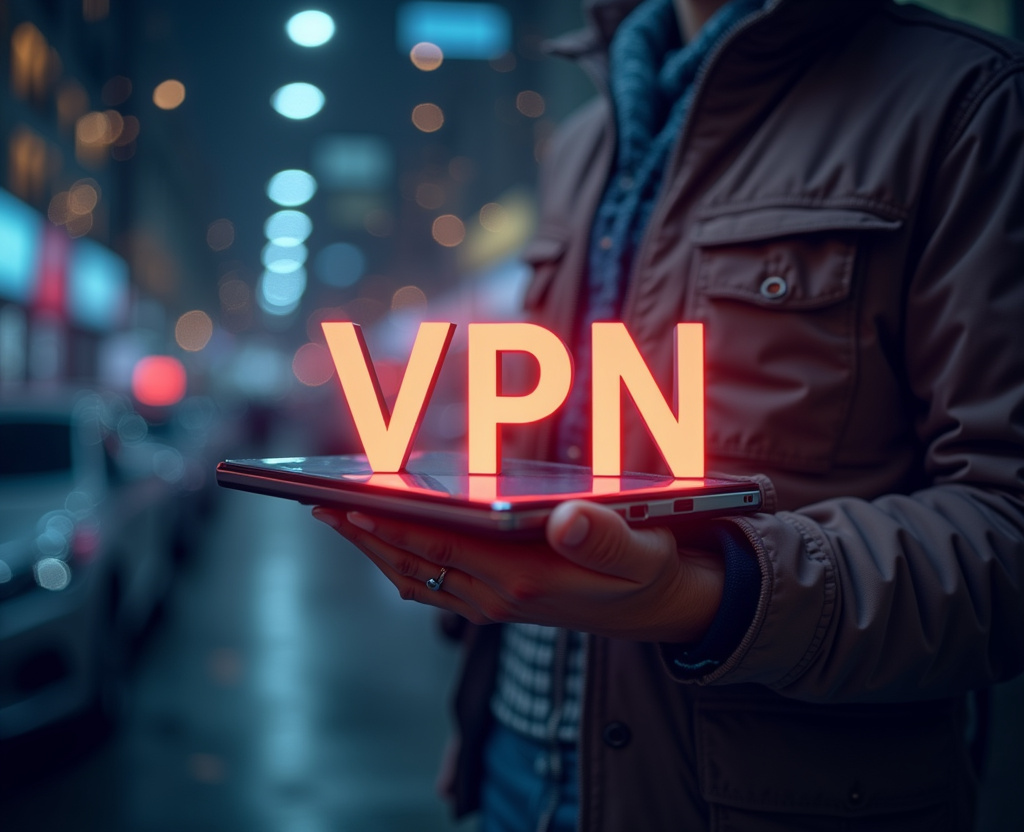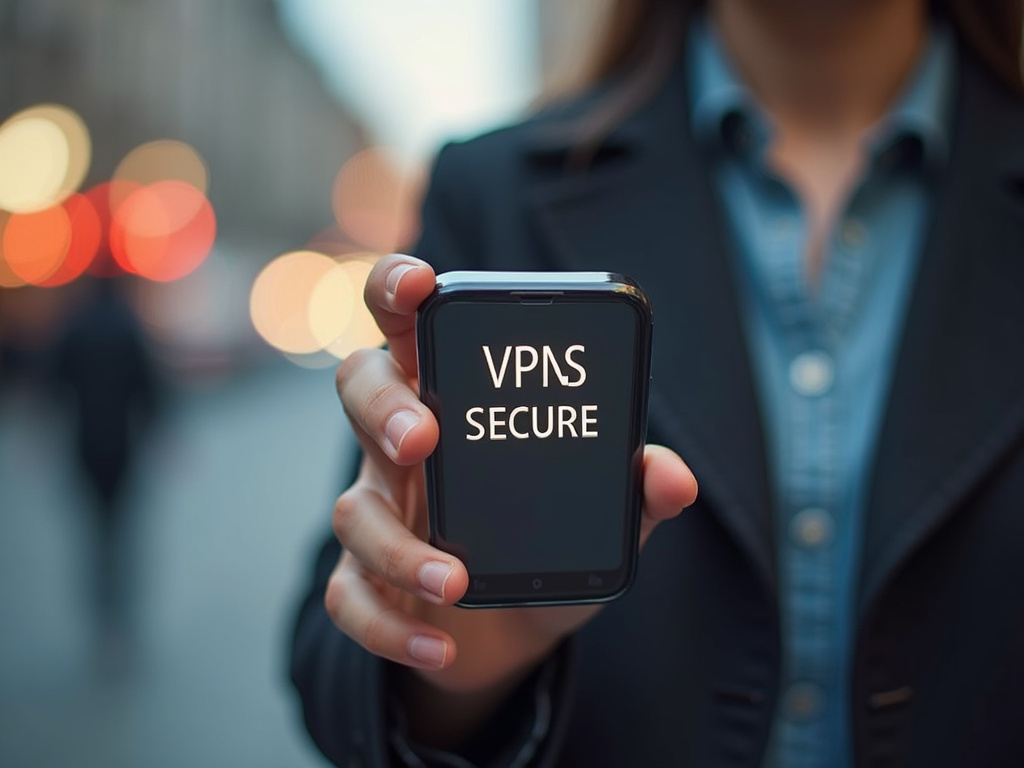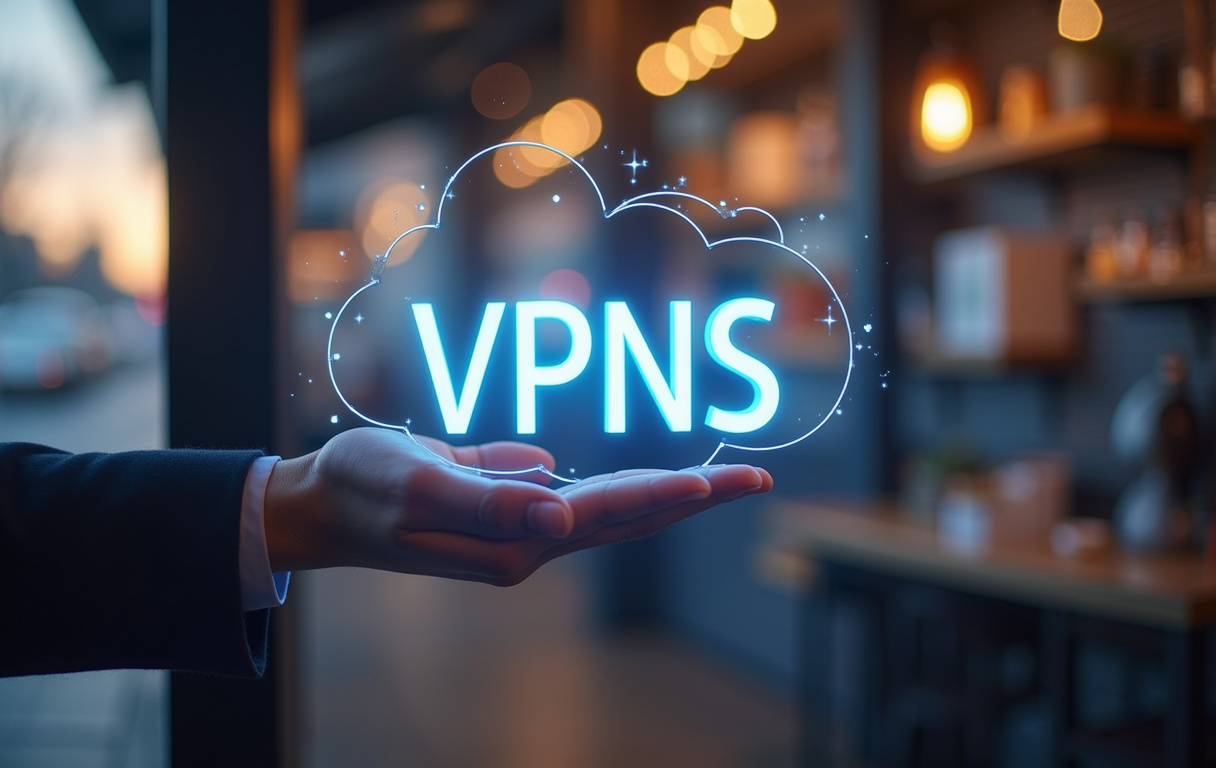VPNs for Online Book Stores: Securing Customer Data
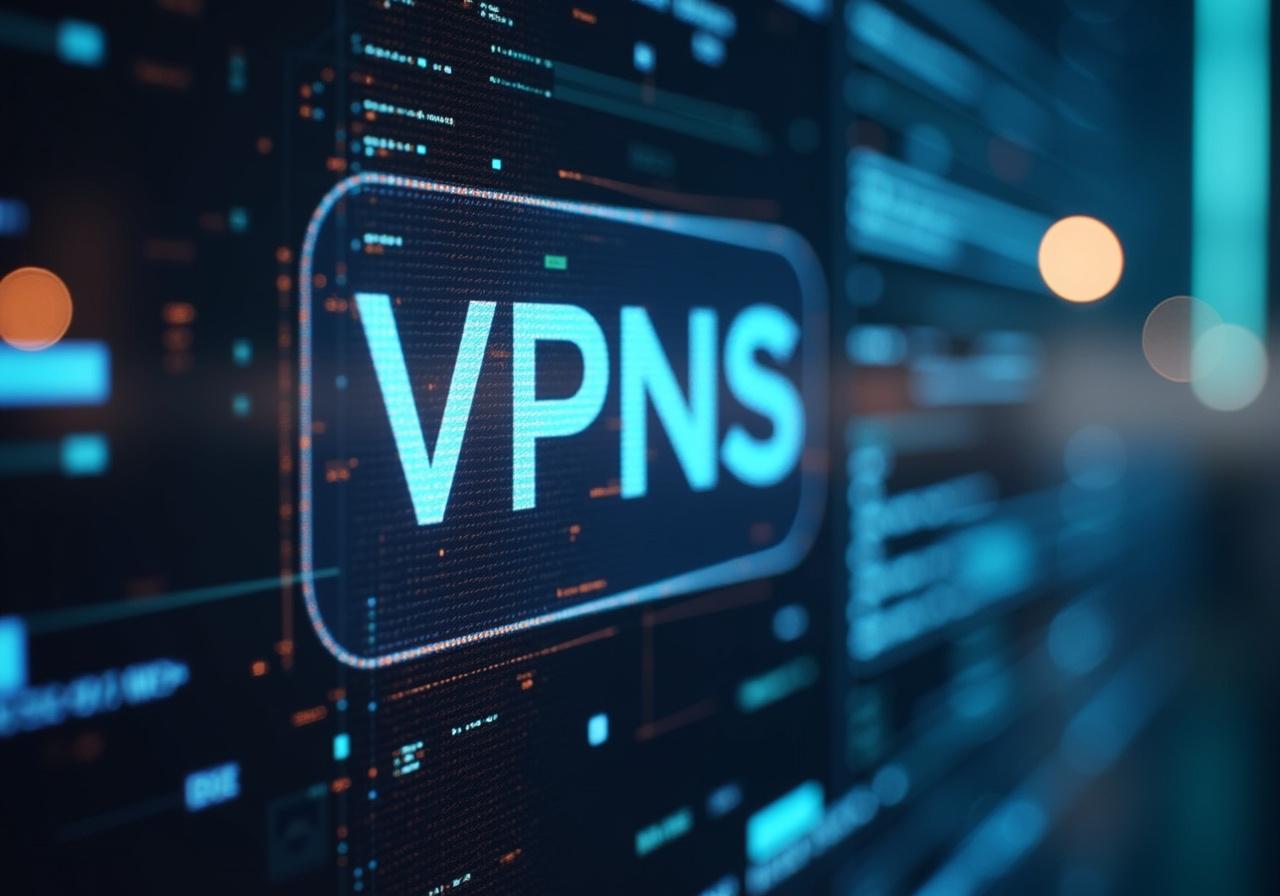
Table of Contents
In the evolving digital marketplace, online bookstores have become pivotal for modern literary consumption. These virtual spaces provide unmatched convenience, allowing readers to discover and purchase books from their homes. However, this digital shift brings cybersecurity challenges, notably concerning the protection of sensitive customer data.
Online bookstores collect a wealth of information, including personal details, purchase histories, payment information, and browsing habits, making them attractive targets for cybercriminals. A data breach can result in identity theft, financial fraud, and reputational damage for both the bookstore and its customers. To combat these threats, online bookstores are increasingly relying on Virtual Private Networks (VPNs) as a vital element of their cybersecurity strategy.
A VPN creates a secure tunnel, encrypting internet traffic and hiding IP addresses, thus protecting customer data from unauthorized access. This article explores the importance of VPNs for online bookstores, examining how they enhance customer data security, strengthen purchase protection, build consumer trust, and improve the overall security of the retail platform. Protecting customer data is paramount for online bookstores due to the sensitivity of the information managed.
Any compromise can lead to severe repercussions. The primary role of a VPN is to encrypt internet traffic, transforming it into an unreadable format that is impenetrable to cybercriminals. When a customer connects to an online bookstore via a VPN, all data transmitted between their device and the bookstore's server is encrypted.
This includes login credentials, personal details, and payment information. This encryption prevents hackers from intercepting and deciphering the data, even if they breach the network. Encryption algorithms like Advanced Encryption Standard (AES) with 256-bit keys are typically used due to their robustness against brute-force attacks.
The stronger the encryption, the more difficult it is for unauthorized parties to access the transmitted data. This provides a critical layer of defense against various cyber threats. Furthermore, VPNs mask the user's IP address, a unique identifier revealing their location and internet service provider.
By concealing the IP address, a VPN prevents websites and online trackers from monitoring the user's activities and collecting data without consent. This enhanced privacy is crucial for protecting customers from targeted advertising, price discrimination, and online profiling. For example, without a VPN, an online bookstore might track a user's browsing history and offer different prices based on their perceived willingness to pay.
A VPN prevents this by making it difficult to associate browsing behavior with a specific user. This anonymity allows customers to browse and purchase books without fear of being tracked or identified, promoting a more secure and trustworthy online experience. Beyond data encryption and IP masking, VPNs provide additional layers of security that protect customer data.
For example, many VPNs include features such as a kill switch, which automatically disconnects the user from the internet if the VPN connection drops. This prevents unencrypted data from being transmitted, ensuring that the customer's information remains protected even in the event of a VPN failure. Some VPNs also offer protection against DNS leaks, which can expose a user's browsing activity to their internet service provider.
By routing DNS requests through the VPN server, these leaks can be mitigated, further enhancing privacy. By implementing these measures, online bookstores can provide customers with a safer and more private online shopping experience. This not only protects them from potential cyber threats but also instills confidence in the bookstore's commitment to data security.
In addition to safeguarding customer data through encryption and IP masking, VPNs play a crucial role in fortifying purchase protection for online bookstores. Online transactions are inherently vulnerable to various forms of fraud, with cybercriminals constantly devising methods to intercept credit card details and other sensitive payment information during the checkout process. A VPN effectively reduces this risk by encrypting all data transmitted during the transaction, rendering it virtually impossible for illicit actors to steal critical payment data.
The encryption process secures not only the credit card number but also other associated information like the cardholder's name, billing address, and CVV code, all vital for completing fraudulent transactions. By scrambling this data, even if intercepted, it becomes worthless to hackers. Moreover, VPNs serve to prevent what are known as "man-in-the-middle" (MITM) attacks, a particularly insidious type of cyber threat.
In MITM attacks, hackers strategically intercept communications flowing between the customer and the bookstore's server with the express aim of pilfering login credentials or payment details. These attacks typically occur on unsecured networks, such as public Wi-Fi hotspots, where hackers can easily eavesdrop on and manipulate data streams. A VPN thwarts these attacks by creating a secure, encrypted tunnel.
This tunnel ensures that all data is transmitted directly between the customer and the online bookstore's secure server, bypassing any potentially compromised intermediaries. The secure tunnel acts as a barrier, making it incredibly difficult for cybercriminals to interject themselves into the communication pathway and steal sensitive information. The VPN verifies the origin of the data, ensuring it comes from a legitimate source and hasn't been altered, providing further assurance that the transaction is secure.
Online bookstores should also consider the potential risks associated with payment gateways. While these gateways typically employ their own security measures, such as tokenization and fraud detection systems, they are not impervious to attacks. A VPN can provide an additional layer of protection by encrypting the data transmitted between the customer and the payment gateway.
This is particularly important for bookstores that use third-party payment gateways, as they may not have full control over the security of these systems. By using a VPN, the bookstore can ensure that all payment data is protected, regardless of the security of the payment gateway used. Furthermore, a VPN can assist in mitigating the risks associated with phishing attacks.
Phishing attacks often involve cybercriminals sending fraudulent emails or text messages that appear to originate from a legitimate source, such as an online bookstore. These messages typically contain links that lead to fake websites designed to steal login credentials or payment information. A VPN can help protect customers from phishing attacks by blocking access to known malicious websites.
Many VPN providers maintain databases of known phishing sites and will automatically block access to these sites, preventing customers from falling victim to these scams. By proactively blocking phishing sites, a VPN adds another layer of security that helps safeguard customer data and prevent financial fraud. In essence, employing a VPN acts as a comprehensive shield for purchase protection, minimizing the risks associated with online transactions.
It not only encrypts sensitive information but also prevents MITM attacks, enhances payment gateway security, and offers protection against phishing attempts. This multifaceted approach is essential for building customer trust and promoting a secure online shopping experience.
Building consumer trust is paramount for the sustained success and growth of any online bookstore operating in today's competitive digital landscape. Customers are increasingly discerning and prioritize shopping at platforms they believe will safeguard their personal and financial data. Implementing a VPN strategically showcases a commitment to robust data security, which can significantly bolster consumer confidence.
When customers are assured that their data is shielded by a VPN, they are more likely to feel secure while making purchases and entrusting their personal information to the bookstore. This fosters heightened customer loyalty, encourages repeat business, and enhances the potential for positive word-of-mouth referrals, contributing to a thriving business environment. Essentially, the perception of security directly translates into increased sales and a stronger brand reputation.
Moreover, a VPN implementation can greatly aid online bookstores in achieving compliance with stringent data privacy regulations, notably the General Data Protection Regulation (GDPR) applicable in the European Union and the California Consumer Privacy Act (CCPA) enforced in California, USA. These regulations mandate that businesses implement appropriate technological and organizational measures to protect the personal data of their customers. By deploying a VPN, online bookstores can transparently demonstrate they are taking diligent and reasonable steps to protect customer data, shielding them from potential fines and legal repercussions stemming from non-compliance.
Showing this commitment proactively not only fulfils legal obligations but also builds a stronger ethical foundation that resonates positively with customers. Beyond the immediate benefits of customer trust and regulatory compliance, VPNs offer varied advantages for online bookstores, enhancing their operational efficacy. One significant advantage is the ability to bypass geographic restrictions, enabling access to content and resourceful information that may be restricted in their region.
This is particularly valuable for bookstores with a global presence, allowing them to access region-specific content vital for their marketing or inventory management strategies. Accessing geographically restricted content can provide a competitive edge, allowing bookstores to offer a wider variety of books and services to their customers. Furthermore, a VPN can substantially improve a bookstore's website performance.
By strategically routing traffic through a VPN server, bookstores potentially bypass congested network routes and diminish latency, leading to faster loading times and a markedly better user experience. This is especially critical for bookstores experiencing high traffic, as slow loading times detract significantly from the user experience, which translates to lost sales and dissatisfied customers. Optimizing website performance through VPN use contributes directly to increased customer satisfaction and retention.
The quicker the website loads, the more likely a customer is to browse, make a purchase, and return for future transactions. An additional benefit inherent to VPN deployment is the prevention of Distributed Denial of Service (DDoS) attacks. These malicious attacks attempt to overwhelm a server by flooding it with massive volumes of traffic, rendering it unreachable and unusable by legitimate customers.
By masking their actual IP address with a VPN, the online bookstore makes it substantially more difficult for attackers to successfully target their servers. The VPN, in effect, acts as an efficient shield, absorbing the initial brunt of the attack and preventing it from impacting the core bookstore infrastructure. This guarantees the online bookstore remains accessible to valued customers, protecting sales revenue even amidst a cyberattack event.
The capacity to maintain operational status during a DDoS attack is crucial for preserving a reputation for reliability and building lasting customer relationships. Moreover, VPNs are invaluable for securing internal communications within the online bookstore, specifically protecting sensitive data. Employees handling customer data remotely can utilize a VPN to safeguard sensitive and confidential information while accessing the network from remote locations.
This is critical in preventing damaging data breaches potentially precipitated when employees connect from unsecured networks like public Wi-Fi hotspots. By encrypting all internal communication channels, a VPN helps ensure that sensitive and confidential data remains secure and protected from potential unauthorized access and cyber threats.
The selection and implementation of a suitable VPN for an online bookstore necessitates meticulous planning and careful consideration. Several factors must be carefully evaluated to ensure that the VPN aligns effectively with the specific operational needs of the business and provides a comprehensive layer of protection for sensitive customer data. The initial and perhaps most critical consideration revolves around the strength and capabilities of the encryption protocols offered by the VPN.
Ideally, the VPN should support robust encryption protocols such as AES (Advanced Encryption Standard) with a 256-bit key length. AES-256 is widely recognized as one of the most secure encryption standards currently available and offers a high level of protection against brute-force attacks and other sophisticated decryption techniques. Ensuring that the VPN employs such a robust encryption standard provides assurance that all data transmitted through the VPN tunnel remains effectively shielded from unauthorized access.
Secondly, it is paramount to carefully evaluate the VPN provider's data logging policies. Ideally, the VPN provider should adhere to a strict "no-logs" policy, meaning that they do not collect or store any information pertaining to the user's online activities, browsing history, connection timestamps, IP addresses, or any other personally identifiable information. A transparent and verifiable no-logs policy is crucial for maintaining customer privacy and ensuring that sensitive data remains confidential and is not subject to potential compromise or misuse.
It is worthwhile scrutinizing the VPN provider's privacy policy to understand its data handling practices and whether it has undergone independent audits to verify its no-logs claims. Thirdly, assess the geographical distribution and number of servers offered by the VPN provider. A VPN provider with a large network of servers strategically located across various regions can offer several advantages.
A wider server selection allows users to connect to servers closer to their physical location, potentially improving connection speeds and reducing latency. Furthermore, a diverse server network allows users to bypass geographical restrictions and access content that may be blocked in their region. The ability to choose from multiple server locations also enhances anonymity and privacy by making it more difficult to track a user's online activities.
Beyond these core considerations, it is essential to evaluate the VPN's security features and their effectiveness in preventing data leaks. A crucial security feature is a "kill switch," which automatically disconnects the user from the internet if the VPN connection unexpectedly drops. This prevents unencrypted data from being transmitted over the internet, ensuring that sensitive information remains protected even in the event of a VPN malfunction.
Another important security feature is protection against DNS (Domain Name System) leaks. DNS leaks can expose a user's browsing activity to their internet service provider, even when connected to a VPN. The VPN should offer DNS leak protection to ensure that all DNS requests are routed through the VPN server, preventing the ISP from monitoring browsing activity.
Furthermore, the user-friendliness and compatibility of the VPN client software should be taken into account. The VPN client should be easy to install, configure, and use, even for non-technical users. It should be compatible with various operating systems, including Windows, macOS, iOS, and Android, to support a wide range of devices.
A well-designed VPN client can significantly improve the user experience and encourage consistent use of the VPN, thereby enhancing overall security. Finally, the cost-effectiveness of the VPN service should be evaluated in relation to its features and performance. While free VPN services may be tempting, they often come with limitations in terms of speed, bandwidth, security, and privacy.
It is generally advisable to opt for a reputable paid VPN service that offers a balance of features, performance, and security at a reasonable price. Conducting thorough research, reading reviews, and testing different VPN services can help online bookstores identify the best VPN solution for their specific needs and budget.
Upon selecting and procuring a VPN solution, the subsequent stage involves implementing it thoughtfully within the online bookstore's infrastructure. This process extends beyond simply installing the software; it requires a strategic deployment to maximize the VPN's effectiveness and ensure seamless integration with existing systems. Initially, conduct comprehensive training sessions for all employees who handle customer data or access the bookstore's network remotely.
These training sessions should cover the importance of using the VPN, how to connect to it properly, and best practices for maintaining online security. Emphasize the risks associated with connecting to unsecured networks and the potential consequences of data breaches. Equipping employees with the knowledge and skills to use the VPN effectively is crucial for minimizing human error and maximizing its protective benefits.
Next, configure the VPN client software on all devices used to access the bookstore's network, including laptops, desktops, smartphones, and tablets. Ensure that the VPN client is set to automatically connect whenever the device is connected to the internet, particularly when using public Wi-Fi networks. Enable the kill switch feature to prevent unencrypted data from being transmitted in the event of a VPN connection drop.
Additionally, configure the VPN client to use secure DNS servers to prevent DNS leaks and protect browsing activity. By automating these settings, the VPN provides continuous protection without requiring manual intervention from the user. Integrate the VPN with the bookstore's existing security infrastructure.
Ensure that the VPN is compatible with firewalls, intrusion detection systems, and other security tools. Configure these systems to recognize and monitor VPN traffic to detect any suspicious activity. Furthermore, segment the network to restrict access to sensitive data based on employee roles and responsibilities.
This reduces the risk of unauthorized access and limits the potential damage from a data breach. Regular security audits and penetration testing should be conducted to identify and address any vulnerabilities in the bookstore's security posture. Establish clear security policies and procedures for VPN usage.
These policies should outline the acceptable use of the VPN, including restrictions on downloading unauthorized software or accessing malicious websites. Enforce strong password policies to prevent unauthorized access to VPN accounts. Implement multi-factor authentication (MFA) whenever possible to add an extra layer of security and protect against password-based attacks.
Regularly review and update security policies and procedures to adapt to evolving threats and regulatory requirements. By establishing clear guidelines and enforcing robust security controls, the bookstore can minimize the risk of misuse and ensure the ongoing protection of customer data. Monitor VPN usage to detect any suspicious activity or potential security breaches.
Implement logging and monitoring tools to track VPN connections, bandwidth usage, and server locations. Analyze these logs regularly to identify any anomalies or patterns that may indicate a security threat. Establish alerts to notify security personnel of any suspicious activity, such as unusual login attempts, excessive bandwidth usage, or connections from unexpected locations.
By proactively monitoring VPN usage, the bookstore can detect and respond to security incidents quickly and effectively, minimizing the potential damage from a data breach. Finally, stay informed about emerging VPN technologies and security threats. The VPN landscape is constantly evolving, with new features, protocols, and vulnerabilities emerging regularly.
Subscribe to threat intelligence feeds and security newsletters to stay up-to-date on the latest threats and best practices for VPN security. Regularly review the bookstore's VPN configuration and security policies to ensure they remain effective in protecting customer data. By staying informed and adapting to evolving threats, the bookstore can maintain a strong security posture and provide ongoing protection for its customers' sensitive information.
Stay Updated
Get the latest VPN news, tips, and exclusive deals to your inbox.
